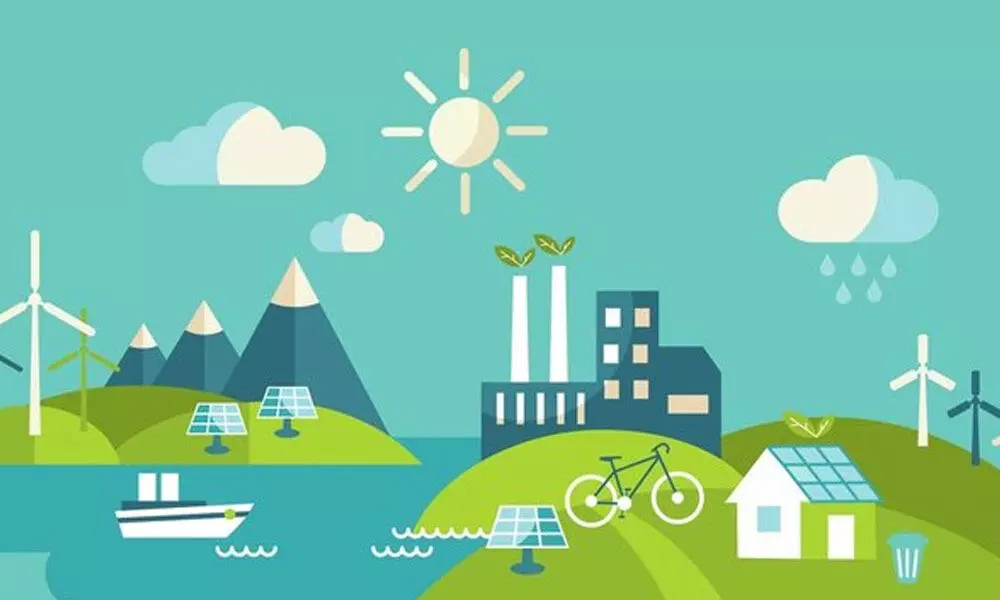Andhra Pradesh leads in energy efficiency
As part of priorities specified by the Union Ministry of Power led Bureau of Energy Efficiency (BEE) to aggressively promote energy efficiency and conservation to achieve comprehensive development by reducing emissions intensity on economy under the Nationally Determined Contributions (NDC) goals, Andhra Pradesh is among few States to form an energy efficiency body.
image for illustrative purpose

Vijayawada/Visakhapatnam: As part of priorities specified by the Union Ministry of Power led Bureau of Energy Efficiency (BEE) to aggressively promote energy efficiency and conservation to achieve comprehensive development by reducing emissions intensity on economy under the Nationally Determined Contributions (NDC) goals, Andhra Pradesh is among few States to form an energy efficiency body.
Appreciating the efforts of AP to promote energy efficiency and conservation, an official said the State has become a role model by setting up a dedicated/standalone State Designated Agency (SDA), i.e. the AP State Energy Conservation Mission to achieve the objectives. The Chief Secretary has been appointed as its Chairman.
Only AP and Kerala have formed standalone SDAs being in the forefront in the establishment of a mechanism that is the formation of Standalone SDA, a senior official of BEE said.
On the eve of completion of 26th Conference of Parties (COP) meeting at Glasgow UK, the BEE director general Abhay Bhakre who participated as Indian delegate, said that energy is one of the key indicators that reflects the growth of a nation and efficient use of this important resource is the cornerstone of sustainable development.
He said that the high economic growth is mainly possible only with low per capita emissions for which it is essential to enhance energy efficiency and promote clean energy. Energy efficiency can play a pivotal role in achieving energy security, contributing to the opportunity to grow economies, provide jobs, reduce energy demand and lower greenhouse gas emission. The Centre is laying a balanced emphasis on economic development and environment. Energy efficiency has the potential to significantly contribute towards achieving the commitments pledged to NDCs, where India has committed to reduce its emission intensity by 33-35 per cent by 2030 from 2005 levels.
India's gross greenhouse gas emissions were 2.136 billion tonnes CO2 equivalent in 2010. Of this, the energy sector contributed about 71 per cent, industrial processes and product use (IPPU) 8 per cent, agriculture 18 per cent and waste sector 3 per cent.
The BEE has developed the Roadmap of Sustainable and Holistic Approach to National Energy.

